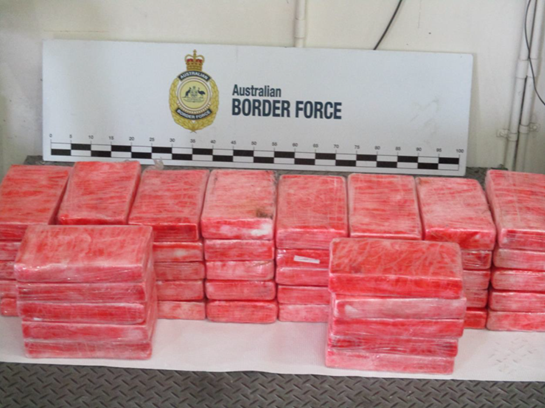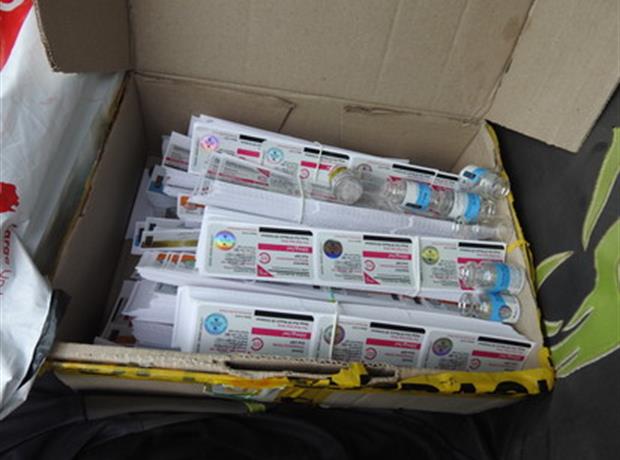Air Freight & Postal Specialists
3hr - Intl Postal Clearance
4hr - Air Freight Clearance
It's Simple - Just submit online in 5mins, then we do the rest.
Lowest Price Guarantee
As a specialist brokerage our pricing is highly competitive, but rest
assured if you find a cheaper comparative quote - We’ll beat it by 10%
step 1 - Select your import method

For goods valued over AUD
1,000 that have been sent
via the origin country’s
postal system (e.g. USPS).
If you have one of these
consignments you will have
received a 13-digit tracking
number from the sender
and/or a customs letter in
the mail.
Where goods have been
consigned from the origin
either directly with the
airlines or via a freight
forwarder at the origin.
If you have a direct air
freight consignment you will
have received an Air Waybill
from either your supplier or
freight forwarder.
For FedEx shipments that
contain “personal effects”,
which are goods that you’ve
owned and used overseas
for a period of 12mths or
more prior to your arrival in
Australia.
If you have one of these,
FedEx will have notified you
to contact an external broker
to clear your goods.
Why use e-Customs Broker Brisbane?
Personal Importer Google Reviews

Trusted by Corporations
Importing into Brisbane - A Customs Agent's Perspective
Australia’s most liveable city may also be its most importable city. With only approximately 30 international flights per day arriving into Brisbane Airport (Sydney has 110), you’ll find collections at any of the three airline bonds (Qantas, Menzies and Dnata) is a piece of cake. You’ll walk in and out in 20mins, even faster if you turn up late afternoon when all the local customs brokers and freight forwarders have already left after their second run of the day.
Try that in Sydney or Melbourne and you’ll lose all morning, first waiting in the overcrowded office queue to pay your port charges and then, with collection ticket in hand, in another queue waiting for the forklift drivers to load you.
If you’re a postal importer, then the Brisbane customs bond is also a cut above the rest. When a client calls us in urgent need of their imported medical equipment (customs won’t even consider to accommodate anything else) and asks if there’s any way they can collect it from the Customs Bond today instead of waiting for Australia Post to deliver it, our first question is always the same… “Are you in Brisbane?” Because if you’re not, then you’ve got Buckley’s.
Customs processes some 170,000 postal articles per day throughout Australia and with Brisbane being their 3rd largest facility, the Eagle Farm gateway is hectic indeed, yet even so the customs staff there seem to be simply more obliging than at other facilities. Maybe it’s the fresh clean BNE air, but there’s definitely a difference, at least in our experience.
In the past 15yrs of clearance processing Brisbane destination cargo, we’ve found this city’s Customs, Quarantine and even Airline bonds facilitators to be some of the most accommodating in Australia, second only to the Gold Coast and possibly Perth.
Customs Clearance and Brisbane Customs Brokers Explained
Air Freight: All importations, regardless of value, arriving via direct airfreight require a customs entry lodged for border security compliance and/or the collection of duties/taxes.
Australia Post: If your consignment exceeds AUD 1,000 and it's arriving via international post then you'll require a customs entry lodged for border security compliance and/or the collection of duties/taxes.
FedEx: All importations that arrive through FedEx that either contain Personal Effects or have a consignment value over AUD 1,000 require a customs clearance for border security compliance and/or the collection of duties/taxes.
In addition to the above circumstances, Customs also stops any shipments that meet ANY of the below criteria:
- Contain Alcohol or Tobacco (ANY quantity or value).
- Contain any goods of Customs Interest.
- Contain any Customs Prohibited or Restricted Imports.
Please Note: The above is only a guide. Even if your goods don't meet these criteria, Customs still maintains the right to hold and inspect any goods at their discretion.
Customs Duty is a percentage of the Customs Value (CV) of your importation. The applicable duty rate can be anywhere from 0% to 10% (product dependent), however for most goods a 5% duty rate is levied.
Customs GST is 10% of the Value of the Taxable Import (VoTI). The VoTI is calculated by the addition of three values, the Customs Value (CV) + the Duty + the freight cost (Intl Transport and Insurance or T&I).
When your importing goods worth more than AUD 1,000 then you’re required to lodge a formal import declaration (FID). Customs brokers lodge these declarations electronically for you and ensure compliance the relevant import legislation.
This covers all the government regulations of Australian Border Force (ABF or Customs), the ATO, Department of Agriculture and Water Resources (Quarantine), CITES, the Dept. of Infrastructure and any other relevant legislation that may be applicable to your goods.
An effective customs broker should save you time and usually money too, often more than you're paying them. Although it’s not mandatory to use a broker facilitate your clearance, in most cases it’s beneficial as described below.
SAVINGS: Customs brokers work to ensure you’re paying the minimum duty and/or GST permitted by law for the specific circumstances of your import. And there are many avenues available for brokers to do this.
For example, in over 83% (avg.) of cases, our postal import clients pay less to use us than if they lodged a B374 - Import Declaration (N10) – Post form themselves.
TIME: We electronically process customs clearances which is much quicker than the manual self-lodgement of an import declaration.
For example, postal consignments are cleared in under 3hrs, but customs 8-10 business days to process self-lodgement submissions.
SIMPLICITY: With a customs broker, all you do is forward them your documents and they do the rest. With e-customs broker it’s even easier because you can submit all online in less than 5mins.
Self-lodgement requires you to complete the import declaration yourself, including applying the correct classification of goods and valuation methods based on your specific import circumstances.
LIABILITY: Another benefit of using a broker is that they protect you from the risk of liability for lodging an erroneous import declaration, which can be significant - anything up to a $12,000 strict liability fine.
The bottom line is that if you’re not 100% sure that you understand the legislation and know what your declaring to customs, then you should use a customs broker.
Air Freight: Once cleared, we email you full collection instructions, then you simply proceed to collect your goods from the nominated airline bond in accordance with these instructions.
Australia Post: Upon receipt of our release emails, your consignment is “Customs Cleared” and our servers immediately notifies Customs of the release. Customs then generates a cargo release report at midnight on the day of clearance, then Australia Post is notified of the release (on the next business day) and instructed to deliver your goods.
FedEx: Upon customs entry completion, we immediately notify FedEx to dispatch your goods for delivery, which usually occurs on the following business day, providing that you’re located within FedEx’s same day delivery zones.
e-Customs Broker Brisbane - The Air Freight/Postal Specialists
© Copyright e-Customs Broker Pty Ltd 2021 | ABN: 49 088 615 249













































